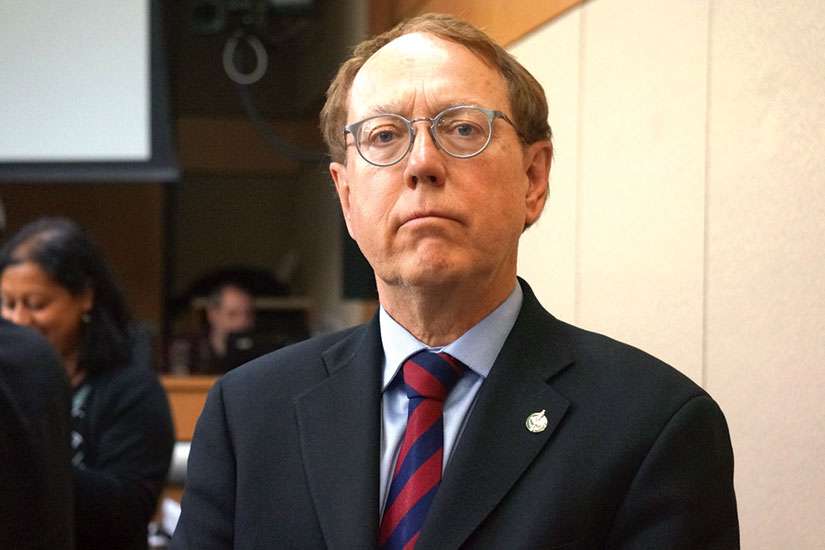The lone NDP member on the Parliamentary committee on physician-assisted dying, Rankin urged that the committee’s report on assisted suicide include recommendations for a properly funded, pan-Canadian palliative care program based on co-operation between the federal, provincial and territorial governments.
The committee “must be committed to implementing the Carter decision and providing recommendations on how it goes forward,” Rankin said. But the other wing of the bird “has to be a serious commitment to palliative care,” making it a “reality and a right.”
Calling his motion the first to require “actual funding” for palliative care by the federal government, he said “we need to put our money where our mouth is.”
Rankin read that motion and several others related to palliative care into the record Feb. 4 as the committee heard the last of 62 witnesses. He told Canadian Catholic News he “moved a series of motions to make sure palliative care is front and centre in the committee’s report.
His motion followed a similar call from Toronto Cardinal Thomas Collins. Addressing the committee on Feb. 3, he called for a cross-Canada network of palliative care facilities to provide end-of-life services to give people viable options to physician-assisted death. He called this a “moral imperative” for all levels of government. (See below for the cardinal’s full statement).
“Our worth as a society will be measured by the support we give to the vulnerable,” he said. “What does it say about us as a society when the ill and vulnerable in our midst feel like burdens? Often, a plea for suicide is a cry for help.
Society should respond with care and compassionate support for these vulnerable people, not with death.”
The committee has gone behind closed doors to brief analysts who will draft the report that must be finished by Feb. 25.
Seventy per cent of Canadians can’t access palliative care and “some estimates are even higher than that,” Rankin said.
In welcoming the motion, the legal council for the Euthanasia Prevention Coalition said palliative care already “is a right.” Hugh Scher expects a court will be asked to confirm that.
“That said, the government has already recognized, historically and presently, this right but has failed to provide the resources or the means to give effect to it,” he said. “That failure represents a fundamental violation of basic principles of health care and basic principles of constitutional law. I expect a Charter challenge will be launched shortly in the event the government does not implement such a program to reflect that right.
“No Canadian should be left with the choice of either suffer to death or kill yourself.”
Rankin said his motion is consistent with NDP MP Charlie Angus’ Motion 456 that called for a pan-Canadian palliative care and end-of-life strategy. His motion was passed almost unanimously by Parliament in May 2014.
Angus said he was disappointed the previous government “never moved on it and the Supreme Court came down like a ton of bricks and now we’re really behind the eight-ball here.”
“This is all supposed to be wrapped up in June by law,” he said. “It will be legal to have the right to die, but not access to quality end-of-life care across the country. To me that is profoundly disturbing.”


